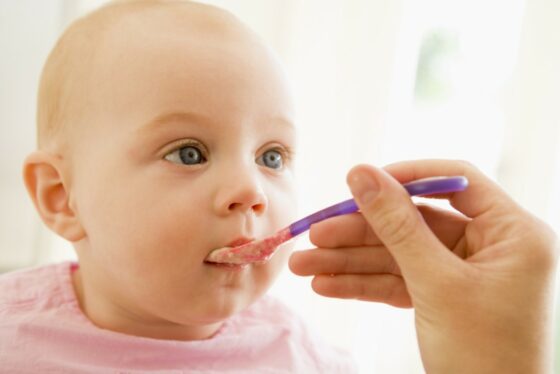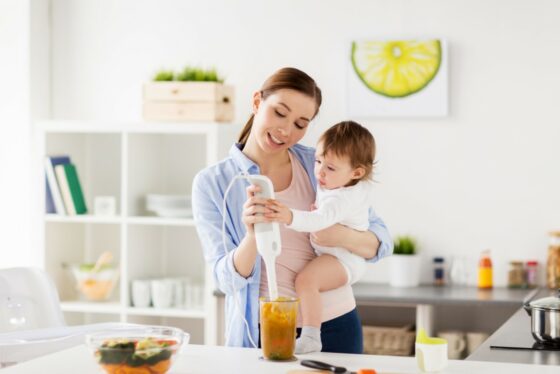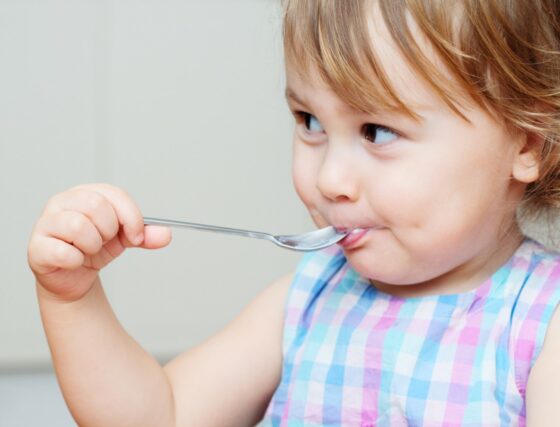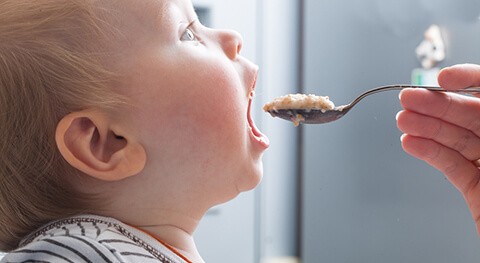What To Look For When Introducing Solids
Most babies will show signs they are ready to try solid food at around six months. Here’s what to look for.
At around six months of age you should start to notice signs that your baby is becoming interested in food. She may be watching you eating, she may start to lean forward and reach for food, or even open her mouth to show she wants to get in on the action.
These signs indicated that you’re about to enter the wonderful, messy world of feeding your baby solids.
The best time to start solids
Before you introduce solids, your baby should have good head control and be able to sit comfortably while supported in a high chair or baby seat. Now is the time to invest in one, if you haven’t already done so. For their first taste of solid food, they need to be able to close their mouth around a spoon and keep the food in their mouth.
Research suggests that around six months (but not before 4 months) is the optimal time for introducing solids to your baby’s diet. Before then, they will be getting all the hydration and nutrients they need through breast milk or formula – which will remain their major source of nutrition for their first year of life.
Follow your baby’s lead
Introducing solids before your baby is ready can turn a fun milestone into a source of frustration for you and your baby, so watch your baby carefully and follow her cues. Some babies will take to solids straight away, while others take more time.
In the early days, eating is more about exploring new tastes and textures than a source of extra calories. If your baby is not ready, wait a few days before trying again. Remember, it should be fun for both of you.
What to feed your little one
Many babies will accept a variety of diverse flavours, so now is a good time to nurture healthy eating habits. There are many different foods and textures you can introduce early on.
By exposing your baby to a range of different foods before the end of their first year, you can help prevent food intolerances and other food-based complications later in life. Indeed, research shows that early exposure to potential allergens will reduce the risk of your baby developing a food allergy.
By educating yourself about safe and healthy first foods for your little one, you can help to establish healthy eating habits that will last them a lifetime.

Want to know more? Call us on 1800 842 098 or Live Chat now.
Track your baby’s development
Get month-by-month advice on your baby’s development



